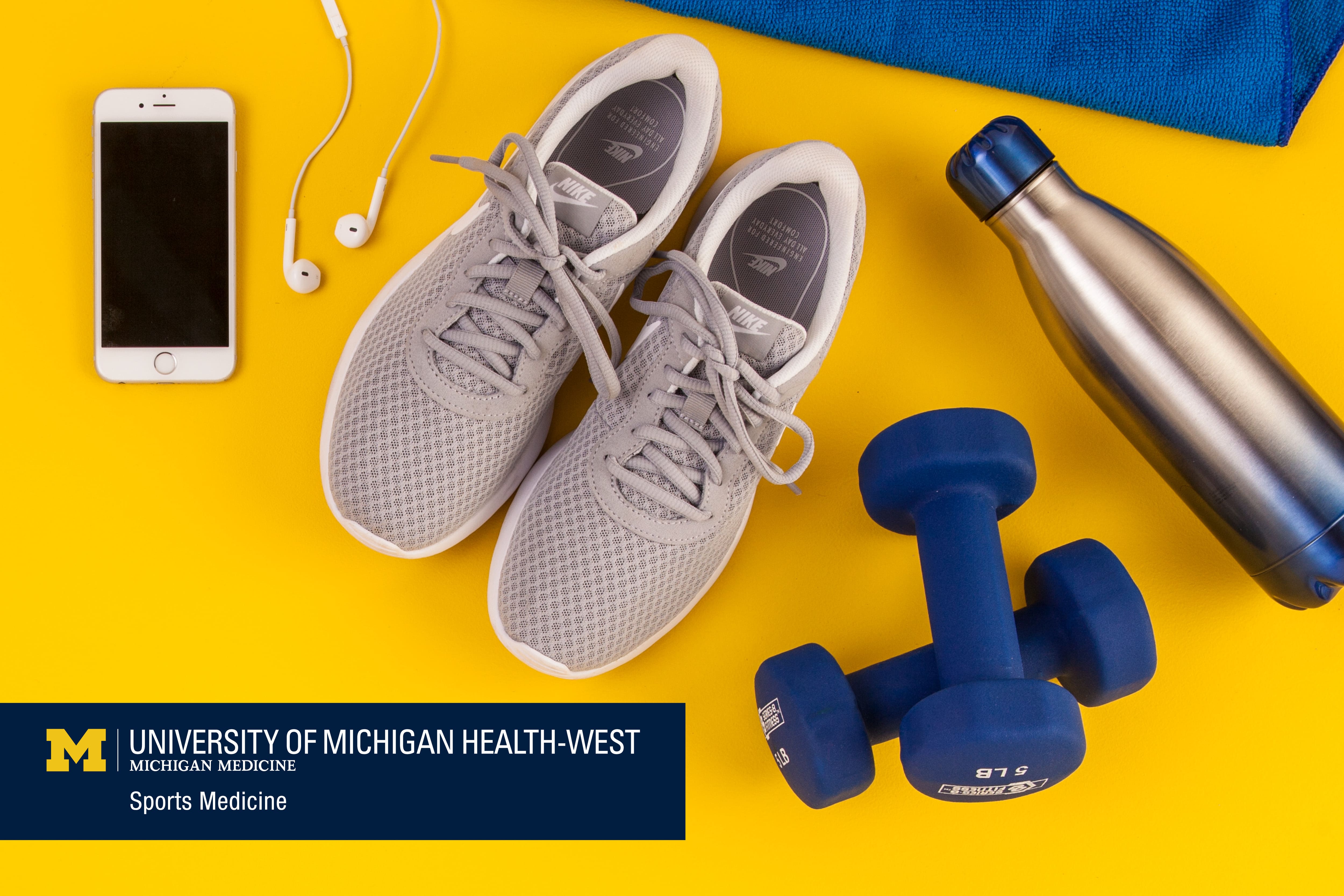
By Dr. Ed Kornoelje | Sports Medicine
You have made it to the final week (or two) of training—great job! What should you be doing and NOT doing as the race gets closer? Here are a few thoughts from someone who has taken care of lots of runners (and run a few races myself).
Do: Relax—the training is done. You cannot cram any more training in. Even if you feel you have not done quite enough, you are where you are. Be confident that what you have done will carry you through.
Don’t: Do more than you can. While you can get through your race on a little less training than what is optimal, if you have missed large portions of your training plan, have been ill, or are just not ready to run the race you have signed up for, consider dropping down to short distance (half to 10K, 10K to 5K), or run a race a little later in the year.
Do: Watch the weather. Will it be warmer than it has been, or cooler? Wet? A general rule of thumb is to dress like it is 15-20 degrees warmer than it is. If the forecast is 55 degrees, dress like it will be 70-75. Wet weather and wind can affect this rule, so use common sense as well! Old race shirts or jackets can be used as throw away items as the race starts. The clothes are collected and donated—you are not littering!
Don’t: Let the weather affect your race. You can control many things (see below), but weather is one that you cannot. If it is going to be warmer than you had planned for, slow down and alter your goal—it may not be a PR day.
Do: Practice eating and drinking what the race will provide. Races usually let runners know what will be served at specific aid stations. If you don’t want to carry your own fluid or fuel, practice with what will be on the course. You don’t want the first time you try a particular fluid or fuel to be during the race itself. Which brings us to…
Don’t: Try anything new on race day. No new fluids or fuel as noted, but also don’t wear a top, bottom or shoes that you have not trained in either. If you have not experienced chafing yet, consider yourself fortunate. A new shirt or short that rubs across a body part in an inopportune manner may create an issue that lasts a good chunk of the race. Shoes as well—make sure you have taken at least a few runs in your new kicks before the race.
Do: Listen to your body. If you don’t feel right, your body may be trying to tell you that it’s time to stop and get checked out. There is a medical team at each aid station (look for the maize!) whose goal is to help you finish the race safely. Most runners who spend time at a medical aid station finish the race–don’t be afraid to stop. We all want you to run again in the future!
Don’t: Feel like you need to drink at every aid station—drink to thirst. Adjust the rate of fluid intake to race pace: slower race pace = slower drinking rate (8 min pace—6-8 oz /20 min, 9-10 min pace—4-6 oz /20 min, over 10 min/mile—4 oz /20 min). Aid stations may be closer together than this—you do not have to drink at each one.
Some final thoughts:
Fuel On-Time: Make sure you are hydrating (see above) and fueling properly early in the race. Taking in calories (in some form) about 45 min after the start of the race is a good idea to try as much as possible to stay fueled.
Medication use: Be cautiousabouttaking anti-inflammatories/NSAIDS (like Motrin, Advil, ibuprofen, Aleve) 24 hours prior to a race. During exercise, the kidneys play a key role in regulating electrolytes to prevent dehydration. NSAIDS affect the kidneys’ ability to regulate these electrolytes & can cause other medical problems. Taking acetaminophen (Tylenol) is OK. Avoid anti-diarrheal and cold medicines as well as they can have a dehydrating effect.
If things don’t go as planned on race day, or you are looking to take your running to the next level, call us at 252-7778 or find a provider here. We are the choice of many elite AND recreational athletes, and utilize our knowledge and resources in getting ALL athletes back on track! It does not matter how fast or slow you go, or what your goals are, the Sports Medicine team at University of Michigan Health-West wants to be your go-to organization to help you achieve your goals. Let us know how we can help!
Be active (and safe)!